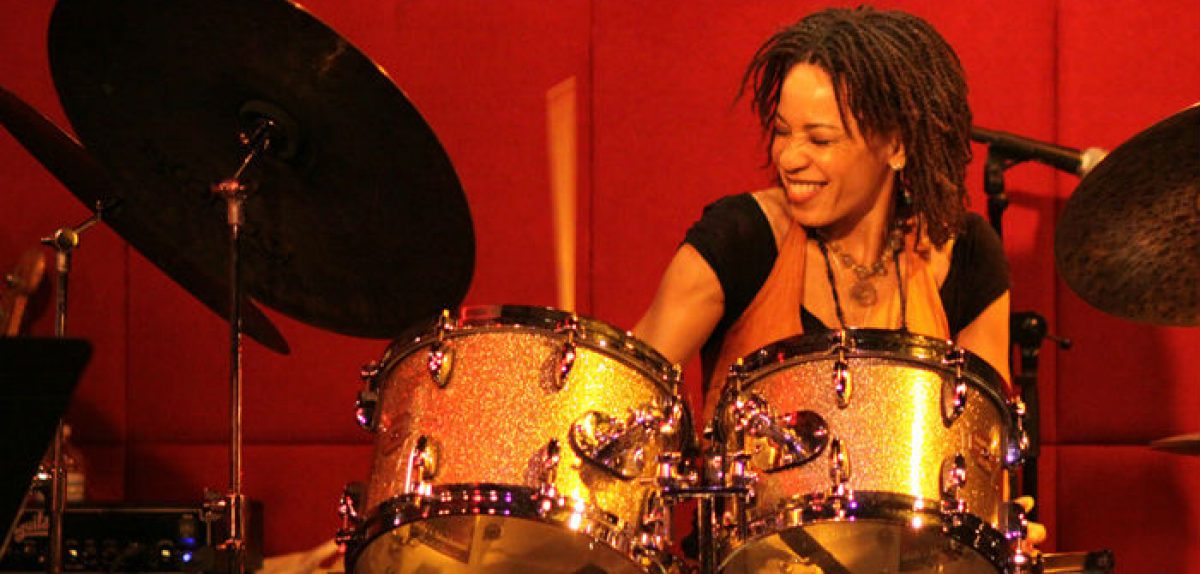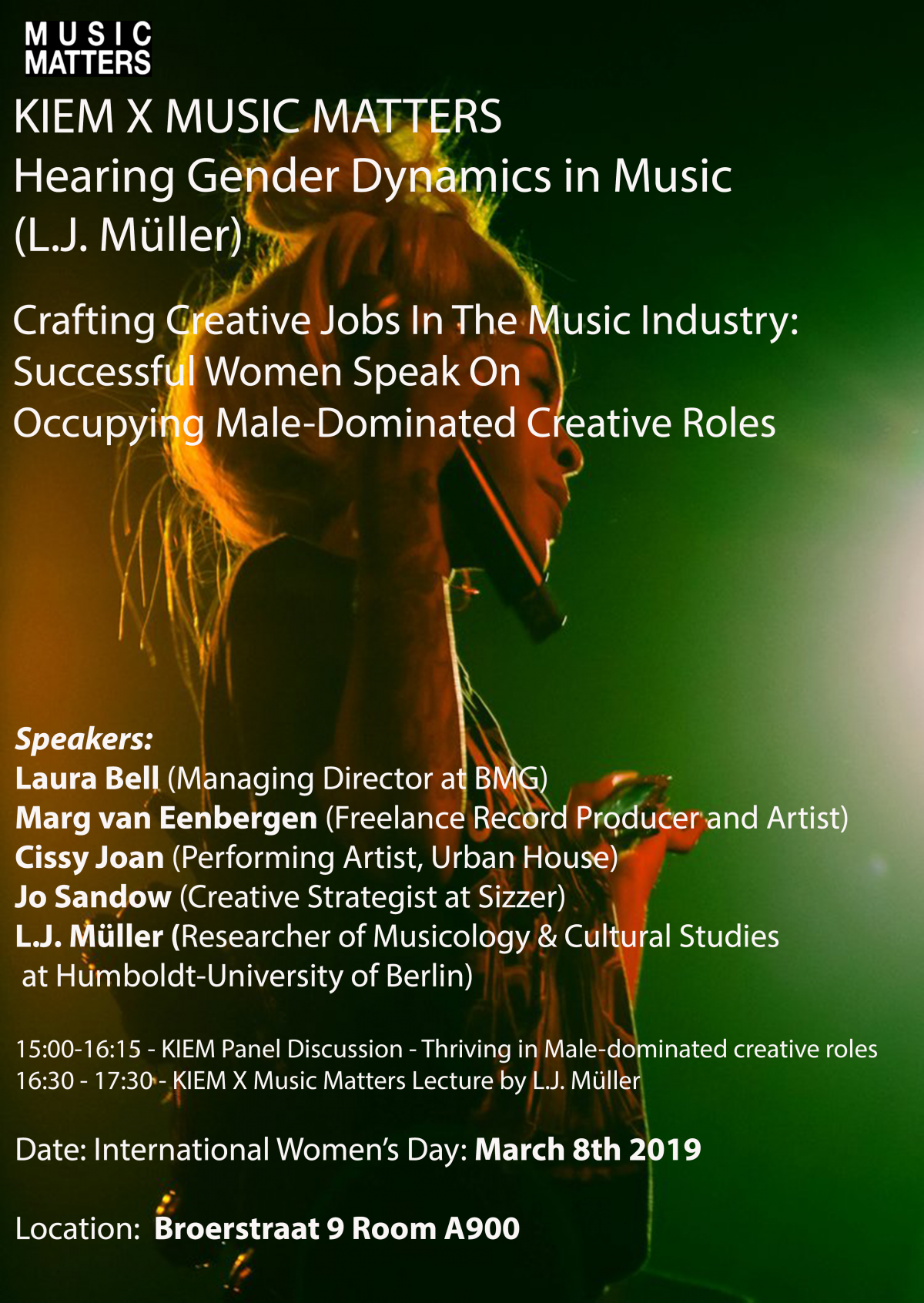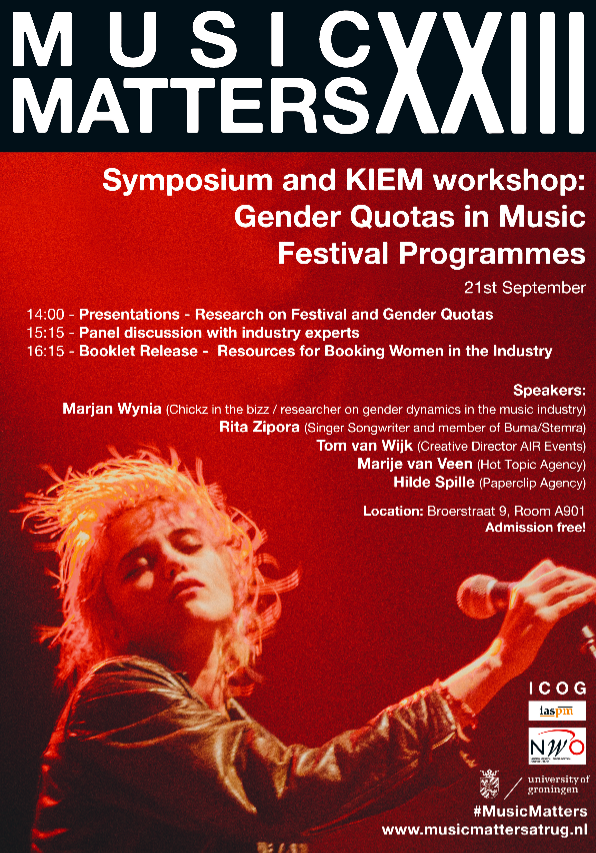The first-ever independent research into inclusion and diversity within the electronic music industry was presented by Sarah Hildering and Samatha Warren at this year’s Amsterdam Dance Event. The intention is to present research into diversity and inclusion annually and compare annual results to see how the balance and equality in the music industry are progressing. Though a lot of previous research has focused on live music, what happens behind closed doors is rarely highlighted. The presented research focuses on the distribution, publishing, and recording sectors of the music industry. It clearly demonstrates how the gender imbalance in the music industry is present: it addresses the percentage of women in organizations, minority experiences in the workplace, fair pay, bullying, harassment, and whether people feel taken seriously for the job they perform. Moreover, the first global Code of Conduct was introduced for music professionals and companies to adopt. This Code of Conduct offers guidance in raising the standards and eventually aims to eliminate discrimination, imbalance, bullying, and harassment in the music industry.
CFP: Women Are not Born to Compose
On 27-29 November 2020, a conference aiming to investigate the music and the role of women composers from 1750 to 1950 will take place in Lucca, Italy. The program committee welcomes papers including, but not limited to:
-
- Gender and genre: women composers and musical genres
- Women composers’ impact on the development of musical forms and genres
- Analytical and hermeneutic approaches to women’s music
- Virtuosity
- Women composers and their self-belief in the context of contemporary views on female creativity
- Reflections on women composers’ position in the history of music
- The critical reception of women’s works
- ‘Heroines of the Risorgimento’: music as a means of conveying patriotic and liberal ideals in women’s works
- Social expectations and possibilities of professional training for women composers
- Women composers’ writings about their music (and that of others)
- How has the social status of women composers been changing along with the transformation of the socio-cultural context?
The keynotes will be given by Mariateresa Storino and Susan Wollenberg.
The submission deadline is 5 April 2020.
CFP: Musical Women in Europe in the Long Nineteenth Century
The submission deadline for abstracts is on 1 December 2019 (5 pm UK time).
Article: an initiative to correct the gender imbalance among conductors
ABC News published an article on an initiative to correct the gender imbalance among conductors in the US. Conducting is well known to have historically excluded women, but the call for collective improvement of the imbalance is growing stronger. Dallas Opera founded the Linda and Mitch Hart Institute for Women Conductors in order to improve the ratio. The institute offers a two-week residency, masterclasses, training in conducting, networking, career strategy, and even in social media presence. It also maintains an alumni network and counsels the fellows after their residency has ended. More importantly, the institute works as a resource for those looking to hire women conductors. While the Hart Institute had a difficult time starting up, it now receives 100 applications annually and has proven successful. In the five years since the institute was founded, there has been a rise in the percentage of women conductors at the top opera companies in the US – from 4% to 14% – and several alumni achieved leading positions.
New book: Towards Gender Equality in the Music Industry – Catherine Strong & Sarah Raine
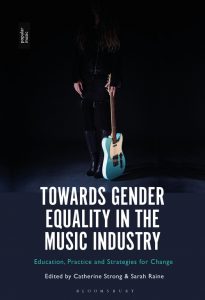 The gender imbalance in the music industry proves to be an ongoing issue. In Towards Gender Equality in the Music Industry, an industry-based approach is adopted in order to examine why this gender imbalance is so hard to shift, and strategies that are being adopted to make a change are explored. Focusing on music education, activist spaces, and case studies that explore practices in the music industry, this volume presents research that considers the gender politics of the music industry.
The gender imbalance in the music industry proves to be an ongoing issue. In Towards Gender Equality in the Music Industry, an industry-based approach is adopted in order to examine why this gender imbalance is so hard to shift, and strategies that are being adopted to make a change are explored. Focusing on music education, activist spaces, and case studies that explore practices in the music industry, this volume presents research that considers the gender politics of the music industry.
May 17-18 – Two-Day Symposium on Gender Dynamics in the Music Industry

We are excited to welcome you to the last KIEM event of the year on the topic of gender dynamics in the music industry on May 17th and May 18th at the University of Groningen.
The symposium features two international keynote speakers, Dr. Marion Leonard (University of Liverpool, UK) and Dr. Ann Werner (Södertörn University, Sweden) with experience researching and publishing on this important topic as well as an evening performance with Rindinedda at the local cafe Het Heerenhuis.
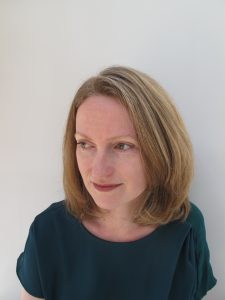
Dr. Marion Leonard will speak on Cranking up the Volume: Working on Gender in the Music Industries
Marion Leonard is senior lecturer in the Department of Music at the University of Liverpool where she is also a member of the Institute of Popular Music. She is author of Gender in the Music Industry (Ashgate) which drew on in-depth interviews with women rock musicians to explore how they negotiated gendered cultures within their working lives. Her recent work in this area has looked beyond musicians to consider how gender structures the experiences of women working in other areas of employment in the music industries. She has published numerous articles and chapters in the field of popular music studies and is co-editor of The Beat Goes On: Liverpool, Popular Music and the Changing City (Liverpool University Press) and Sites of Popular Music Heritage (Routledge).
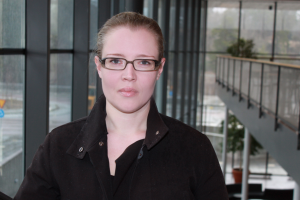
And Dr. Ann Werner will speak on Feminist Interventions and the Music Industry.
Ann Werner’s PhD in the field of cultural studies examined teenage girls’ uses of popular music while attending the institutions Linköping University in Sweden and Western Sydney University in Australia. From 2009, she took various posts in music, media and gender studies at Södertörn University, Stockholm University, Auckland University, and Linnaeus University respectively. Her research interests include projects on first people’s music online, dancing within YouTube, and draws from concepts from education, music and gender studies. She has also researched music related media such as music streaming as well as the relationship between music, gender, feminism and anti-racism more broadly. Her latest publication in the journal Per Music is titled “What Does Gender have to do with Music Anyway?” (2019 forthcoming). In 2018, she published the book Streaming Music with Routledge, co-written with Sofia Johansson, Patrik Åker and Gregory Goldenzwaig.
For the entire program and registration please see our website.
Locations:
May 17th – Exposition Hall, Harmony Building 9:00-19:00 (Oude Kijk in Het Jatstraat 26, 9712 EK Groningen)
May 18th – Het Doopsgezinde Kerk 9:00-18:00 (Oude Boteringestraat 33, 9712 GD)
Other articles about this topic:
“Gender Diversity in the Music Industry: The Numbers are Grim,”The New York Times (2018)
“Men make the music: Study reveals that women’s voices are missing from popular charts”: https://annenberg.usc.edu/news/research/men-make-music-study-reveals-womens-voices-are-missing-popular-charts
Friday March 8th – In Honor of International Women’s Day – Panel on “Crafting Creative Jobs in the Music Industry” and Lecture “Hearing Gender Dynamics in Music”
Lecture: Hearing Gender Dynamics in Music? Feminist Approaches to Popular Music Analysis (L.J. Müller)
Industry Panel: Crafting Creative Jobs in the Music Industry (Laura Bell, Marg van Eenbergen, Cissy Joan, and Jo Sandow)
Within this symposium, we bring together successful women working within the popular music field in Europe, allowing them to reflect upon experiences working in male-dominated roles within creative industry positions and opening the floor for discussion.
We will begin at 15:00 with a panel discussion featuring Laura Bell (Managing Director at BMG), Marg van Eenbergen (Freelance Record Producer and Artist), Cissy Joan (Performing Artist, Urban House Groningen), Jo Sandow (Creative Strategist, Sizzer). Our illustrious panel is followed by a guest lecture presented by L.J. Müller, PhD candidate in Musicology and Cultural Studies at the Humboldt University of Berlin. For more information on our featured speakers click here.
We wish to invite not only Arts faculty and student members of the university but anyone who may be interested in hearing more about gender dynamics in influential popular music career paths. Together we hope to explore how new gender informed forms of music analysis may contribute insight into the practical matters of getting somewhere in the music industry and vice versa, we aim to learn for these professionals, gaining insights about how to cope and thrive in this environment.
Gender Quotas in Music Festivals Workshop – Sept 21, 2018 – University of Groningen
Recent debates concerning women in the music industry circulated widely in the media with well–cited statements by international pop stars like Beyoncé and Bjork. These were later addressed by the industry itself leading finally to questions concerning gender inequality throughout the music industries and the related under representation of women artists on festival programs. While many believe that there are simply far too few women acts in current events, advocates of gender quotas believe that promoters require external pressure to book more female artists in order to ensure fair and inclusive programming practices.
On Friday the 21st of September, the University of Groningen, in collaboration with ICOG and IASPM Benelux, held a symposium funded by the NWO KIEM project to research “Gender Dynamics in the Dutch Music Industries”. During this first workshop of a 4-part, year-long series of workshops and discussions, entitled Music Matters, the gender relations in music festival programs were examined and discussed with professionals from the industry and academics engaged with gender research in popular music. Students presented their research and industry professionals offered insight into what goes on behind the scenes of the music business. Further, together we will explore with further research, how current booking practices influence the broader gender dynamics within Dutch society. Ultimately, we will pose the question if gender quotas may be the solution to breaking down gender barriers in festival line-ups, setting a powerful and symbolic message to other labour fields.
Panelists featured during the symposium;

Singer songwriter Rita Zipora is Busy a with a capital B. Recently she has released the first EP of her album ‘Wolken’, a collection of electronic pop songs, in cooperation with poet and singer songwriter Robin Block. She has graduated at the Amsterdam Conservatory and written her master thesis on musical copy right in the digital domain. Rita is also on the board of BAM, Beroepsvereniging Auteur-Muzikanten and member of Buma/Stemra’s Raad van Rechthebbenden. As a member of Buma/Stemra’s task force on gender equality she will shed light on Buma/Stemra’s research on women music creators.
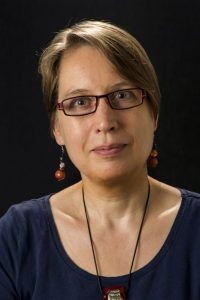
Hilde Spille – in 1988, after a bachelor studyin Theology and Philosophy in Frankfurt a.M. (Germany). Hilde came in 1988 to the Netherlands to study Feminist Theology. Within a few months, she switched her study to Psychology and stayed in the Netherlands. With her Master degree in Cultural Psychology, she started in 1995 to work at Paperclip Agency. She books shows and tours for artists from all over the world, as their European agent or as Dutch booker, amongst them are Pussy Riot, I Muvrini, Balkan Beat Box, Sass Jordan and many more.
Since 2002, Hilde has worked as talent buyer for Conincx Pop Festival in Elsloo (Lb.)/NLD. In 2012, Hilde started her blog Compass for Creatives to address the mental challenges that musicians encounter. In this, she can combine her knowledge of psychology with her experience in the international live music industry. Now she has been asked as guest lecturer on a regular basis. She also offers individual coaching and mental training to musicians. After the #MeToo campaign, Hilde developed a mental training programme in ‘Mental Self Defence” for musicians.
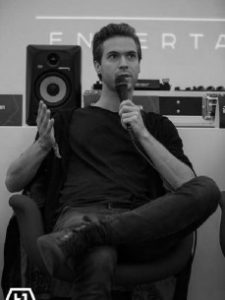
Throughout his career, Tom van Wijk (1985) has been your go-to person for the best club and festival line ups. Tom has an eye for musical talent and innovative ideas in musical genres. Fifteen years ago, Tom began his professional career setting up his own event production company and started organizing electronic music events across the Netherlands. Soon after this successful start, he also incorporated booking agency Alter Music to his business. In 2005 he joined leading club and festival promoter CHemistry as a producer and communications manager. In 2010 club AIR opened its doors with Tom being responsible for all things creative as Head of Music. Soon he became promoted as Creative Director of AIR Events at ID&T, one of the key festival frontrunners in the Netherlands with festivals such as Amsterdam Open Air, Valhalla, Fiesta Macumba and Milkshake Festival.
RESEARCHERS

Marjan Wynia has worked as a marketing & communications manager in the creative industries for many years. For over a decade, she has worked for the GRAP foundation, an organisation dedicated to helping talented music artists in kickstarting their careers. She was responsible for the marketing of Muzikantendag, Amsterdams Bevrijdingsfestival, Amsterdamse Popprijs and many more. She has written an online guide to the music industry (Muzikantendag Academy) and edited De Waarde van Pop. She is also one of the co-founders of female network organisation Chicks in the Bizz. Recently she started as a freelance copy writer and next to that she is researching gender dynamics in the music industry alongside other instrumental individuals associated with KIEM.
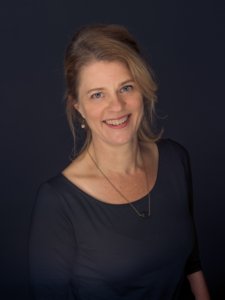
Kristin McGee is Associate Professor of Popular Music and Jazz at the University of Groningen in the Netherlands. She is the current chair of the Benelux region of IASPM. She has written on the subject of jazz, gender and media for her 2009 monograph Some Liked It Hot: Jazz Women in Film and Television (Wesleyan). This presentation was part of her upcoming publication Remixing European Jazz Culture as part of Routledge’s Transnational Jazz Series.
Call for papers – Gender Dynamics in the Popular Music Industry
The Department of Arts, Culture and Media in connection with the research project Music Dynamics in the Music Industry funded by the NWO KIEM (Creative Industry – Knowledge Innovation Mapping) at the University of Groningen is pleased to announce a two-day symposium to be held on May 16-17, 2019. The symposium will bring together both scholars and industry professionals to share insights on the topic of Gender Dynamics in the Music Industry. The intention is to share resources and create a dialogue to better address the lack of gender parity within the music industry. Further, we seek to extend to discussion to fields connected to, but not exclusive to the (relatively better researched) performance sphere. We welcome scholars and industry professionals from all genders and from all genres of music from classical to folk and popular.
Please send your abstract, a short bio (less than 100 words) and affiliation to k.a.mcgee@rug.nl by March 15th, 2019.
Abstracts should be less than 350 words, in English, and with a relevant title. Proposed panels are also welcome and should contain a short panel abstract – less than 300 words and individual presentation abstracts, less than 350 words.
For more information on the content of the symposium visit the Gender Dynamics Symposium: May 16th-17th tab on the right.
Panel Presentation at Groningen’s Eurosonic Noorderslag
Hoe krijgen we meer vrouwen op het podium? (How to promote more women on music stages?)
In recent years, a general recognition of the gender dynamics pervasive within music seems to be on the rise. But attention is mostly drawn to the gender disparity between professional artists. To better understand the practices disadvantaging women on concert stages, the time is ripe to shift attention to focus upon talent platforms. While in music education programs, gender is well balanced, yet the informal routes to professional musical careers seem to disadvantage female artists disproportionately. In this panel, industry experts and gender scholars debate the gendered practices of talent platforms that continue to play a role in the gender gap within the music industry more broadly.

Panelists featured during this event will include: Kristin McGee (Rijksuniversiteit Groningen), Li Sang Ong (Conservatorium van Amsterdam), Chris Moorman (Popronde) Jorien Stravens (Popsport)
